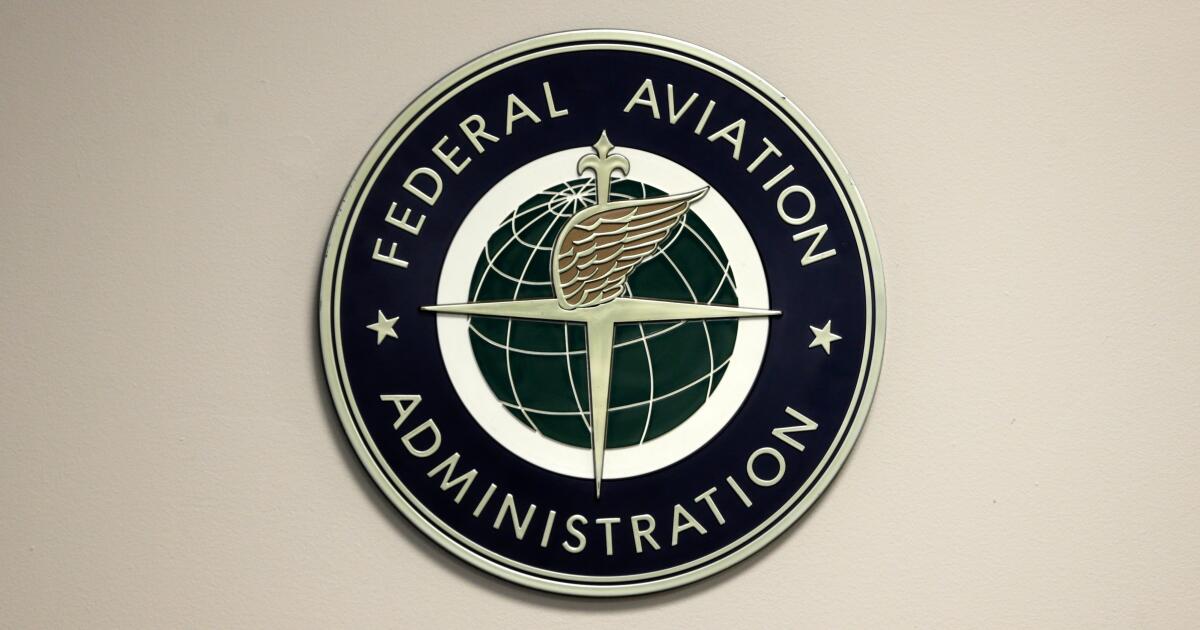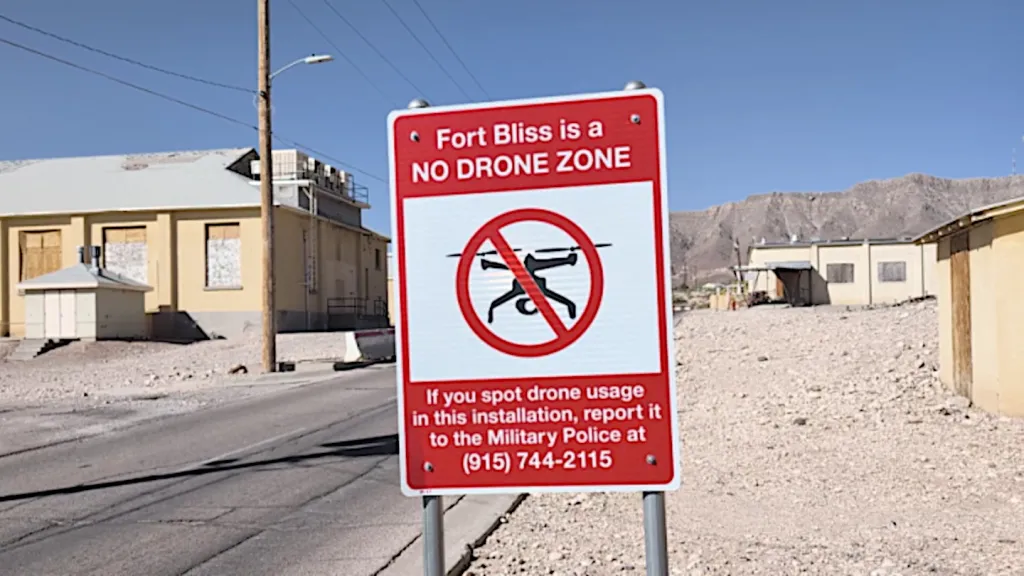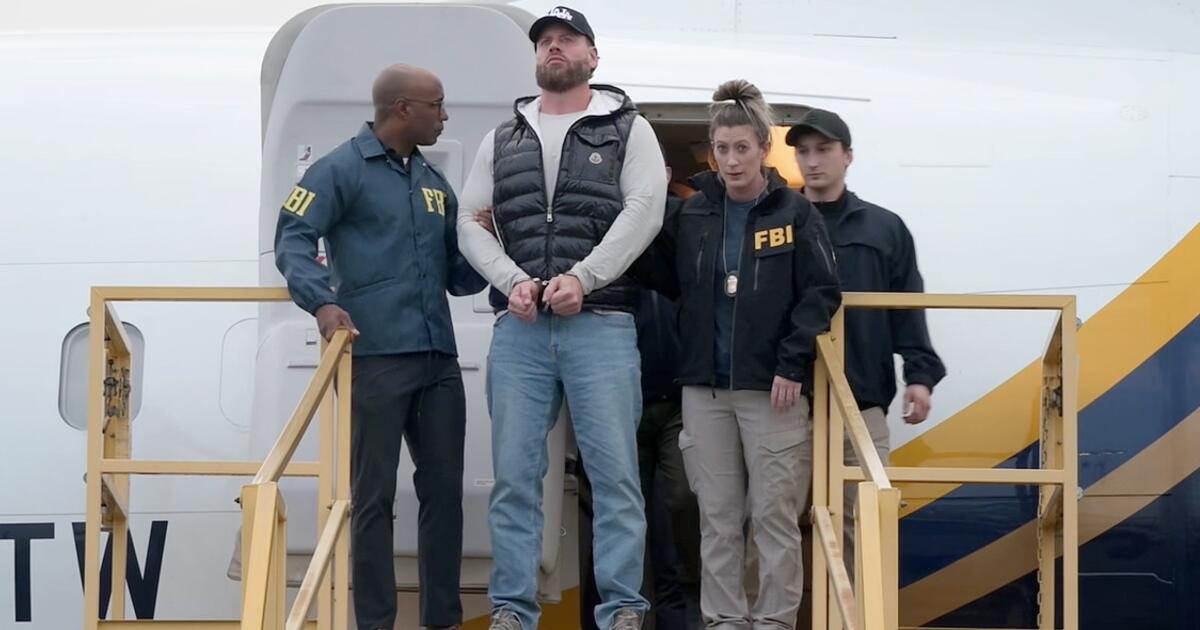Pentagon-FAA dispute over lasers to thwart cartel drones led to airspace closure, AP sources say
WASHINGTON — The sudden and surprising airspace closure over El Paso, Texas, stemmed from the Pentagon’s plans to test a laser for use in shooting down drones used by Mexican drug cartels, according to three people familiar with the situation who were granted anonymity to share sensitive details.
That caused friction with the Federal Aviation Administration, which wanted to ensure commercial air safety and the two agencies sought to coordinate, according to two of the people.
Despite a meeting scheduled later this month to discuss the issue, the Pentagon wanted to go ahead and test it, prompting the FAA to shutter the airspace. The laser was used at some point, one of the people said.
Transportation Secretary Sean Duffy said earlier that a response to an incursion by Mexican cartel drones had led to the airspace closure and that the threat had been neutralized. Drone incursions are not uncommon along the southern border.
Officials at the White House, FAA and Department of Transportation did not respond immediately Wednesday to request for comment about the dispute. The Pentagon said it had nothing to add to its statement that largely mirrored Duffy’s comment.
The FAA had originally announced a 10-day closure of the airspace, confusing travelers at the airport in the border city with a population of nearly 700,000 people. The order was lifted a few hours later. No Mexican airspace was closed.
Duffy said in a post on X that the FAA and the Defense Department “acted swiftly to address a cartel drone incursion. The threat has been neutralized and there is no danger to commercial travel in the region.” Duffy said normal flights were resuming Wednesday morning. He did not say how many drones were involved or what specifically was done to disable them.
Rep. Veronica Escobar, a Democrat whose district includes El Paso, said neither her office, the city of El Paso nor airport operations received advance notice. She said she believed the shutdown was not based on Mexican cartel drones in U.S. airspace, saying that “is not what we in Congress have been told.”
Pentagon officials declined to comment on Escobar’s remarks and Texas Gov. Greg Abbott’s office referred questions to the FAA.
“I believe the FAA owes the community and the country an explanation as to why this happened so suddenly and abruptly and was lifted so suddenly and abruptly,” Escobar said during a news conference. The shutdown had been expected to create significant disruptions given the duration and the size of the metropolitan area around El Paso.
“The information coming from the federal government does not add up,” Escobar said.
Cross-border drone activity is not new
Rep. Tony Gonzales, whose district covers an area that stretches for about 800 miles along Texas’ border with Mexico, said cartel drone sightings are common.
“For any of us who live and work along the border, daily drone incursions by criminal organizations is everyday life for us. It’s a Wednesday for us,” Gonzales said.
Asked about the drone explanation provided by U.S. officials, Mexican President Claudia Sheinbaum said she had “no information about the use of drones on the border.” She noted that if U.S. authorities have more information they should contact Mexico’s government.
Steven Willoughby, the deputy director of the counter-drone program at the Department of Homeland Security, told lawmakers in July that cartels are using drones nearly every day to transport drugs across the border and surveil Border Patrol agents.
More than 27,000 drones were detected within 1,600 feet of the southern border in the last six months of 2024, he testified, mostly at night. Homeland Security has said agents have seized thousands of pounds of methamphetamine, fentanyl and other drugs in recent years that cartels were trying to fly across the border using drones.
Mexican officials head to Washington
El Paso is hub of cross-border commerce alongside Ciudad Juárez. The Mexican city is home to about 1.5 million people, and some of its residents are accustomed to taking advantage of facilities including airports on both sides of the border. That easy access to the U.S. has also made Juarez, like other border cities, attractive to Mexico’s drug cartels seeking to safeguard their smuggling routes for drugs and migrants headed north and cash and guns moving to the south.
El Paso International Airport said in an Instagram post after the closure was announced that all flights to and from the airport would be grounded through Feb. 20, including commercial, cargo and general aviation flights. Local newscasts showed stranded travelers with luggage lining up at airline ticket counters and car rental desks at the El Paso airport hours after flights were grounded.
The airport posted later Wednesday morning that its operations had resumed and encouraged travelers to contact their airlines for the most up-to-date flight information.
Mexican defense and navy secretaries planned to meet with Northern Command officials in Washington on Wednesday in a meeting scheduled to be attended by representatives of several other countries, Sheinbaum said during a news conference. Sheinbaum said the Mexican officials would “listen” in the meeting and that her government would look into “the exact causes” of the closure.
‘This was a major and unnecessary disruption’
El Paso Mayor Renard Johnson said at a news conference that he didn’t hear about the closure until after the alert was issued and he called the failure to communicate that to the city unacceptable.
“Decisions made without notice and coordination puts lives at risk and creates unnecessary danger and confusion,” Johnson said. “This was a major and unnecessary disruption, one that has not occurred since 9/11.”
The airport describes itself as the gateway to west Texas, southern New Mexico and northern Mexico. Southwest, United, American and Delta all operate flights there, among others.
A similar 10-day temporary flight restriction for special security reasons remained in place Wednesday morning around Santa Teresa, N.M., which is about 15 miles northwest of the El Paso airport. FAA officials did not immediately explain why that restriction remained in place.
U.S. Sen. Ben Ray Lujan of New Mexico, a Democrat, said in a statement: “Keeping our communities informed and safe is critical. I’m demanding answers from the FAA and the administration about why the airspace was closed in the first place without notifying appropriate officials, leaving travelers to deal with unnecessary chaos.”
Shutdown and restart creates confusion for travelers
The airspace closure upset travel plans on both sides of the border.
María Aracelia was pushing two roller suitcases across the pedestrian bridge from Ciudad Juarez to El Paso on Wednesday morning. She had a round-trip flight to Illinois scheduled for the afternoon.
After receiving a text at 4 a.m. telling her about the 10-day closure, she scrambled to try to find other options, even how to get to another airport. Then came a notification that the El Paso airport had reopened.
“This is stressful and there isn’t time to make so many changes, especially if you need to get back for work,” Aracelia said.
Kim, Finley, Jalonick and Lee write for the Associated Press. Lee reported from El Paso, Texas. AP writers Jim Vertuno in Austin, Texas; Josh Funk in Omaha; Darlene Superville, Mike Balsamo and Konstantin Toropin in Washington; Kathy McCormack in Concord, N.H.; María Verza in Mexico City, and Christian Torres Chávez in Ciudad Juarez contributed to this report.




